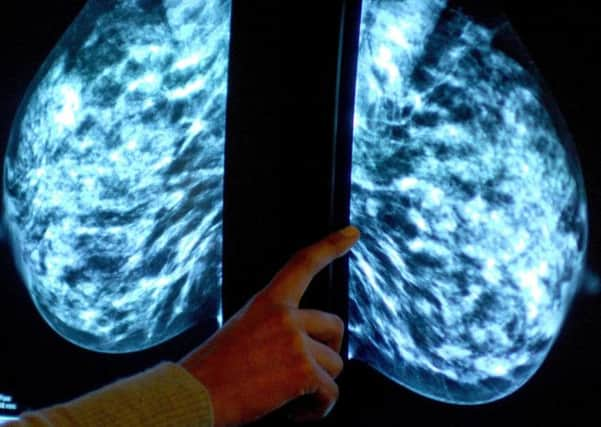Comment: Cancer not just a matter of ‘bad luck’


I usually associate luck with a whole range of strange things that are meant to explain how you might influence it in one way or another. Four-leaf clovers, horseshoes or rabbits feet are meant to bring good luck? And is it really a good idea to avoid walking under a ladder to avoid bad luck?
So I paid close attention last month when the media reported that two-thirds of cancers can be put down to just “bad luck”.
Advertisement
Hide AdAdvertisement
Hide AdThis simple statement appears to contradict all the information that many health organisations and charities like mine have been promoting for years.
So what should you believe?
What causes cancer is one of the simplest, yet hardest, questions to answer. There’s no single cause of breast cancer – the disease results from a combination of different factors.
The claim that cancer is just bad luck is actually very misleading and isn’t supported by the research paper that the story was based on.
Significantly, breast cancer wasn’t even included in that study, and we already know that many lifestyle factors can influence your risk of breast cancer.
Secondly, the idea of “luck” in this instance is based on how likely a cell is to pick up cancer causing DNA mutations as it goes through a process of division and becomes two new cells. Obviously this still applies to breast cancer but these mutations are also caused by other factors, for instance chemicals in tobacco smoke damaging the DNA of lung cells and causing lung cancer.
To rule out all other factors and call it simply “bad luck” is potentially very dangerous. We know that breast cancer is caused by a combination of genetic, environmental and lifestyle factors. So don’t abandon all your New Year’s resolutions and although there are no guarantees, you can still stack the odds in your favour by embracing a healthy lifestyle.
Regularly drinking alcohol has been shown to increase your risk of developing breast cancer so cutting back on after-work drinks throughout your lifetime could make a difference.
Keeping physically active and being a healthy weight might also help to reduce your risk of breast cancer, as well as other cancers.
Advertisement
Hide AdAdvertisement
Hide AdDespite all of this, having particular factors that increase your risk doesn’t necessarily mean that you will definitely get breast cancer anyway. Risk factors simply increase or decrease your chances of developing the disease. So, even if you have a factor that increases your risk and you’re diagnosed with breast cancer, there’s no way of proving the link.
Meanwhile, there’s plenty of things that have absolutely no proven impact on your risk of developing breast cancer. For example, using deodorants, shaving or wearing underwired bras won’t increase your risk.
At the moment, outside of the small proportion of breast cancers that are down to genetics, we have no way of knowing which of us is more at risk of breast cancer. However, this won’t always be the case.
Work based on the Breakthrough Generations Study into the causes of breast cancer will show us how different risks interact. In the future we will be able to predict breast cancer risk based on key lifestyle and biological factors. When we know who is most at risk, we can find the best way to prevent breast cancer occurring, either by preventative treatments, or by changes to lifestyle.
So being diagnosed with breast cancer isn’t just bad luck. Our genes, our lifestyle and our surrounding environment can all affect our risk of developing the disease.
Many things that affect your risk of breast cancer can’t be changed, such as your age, height and genetics.
So, before you start watching out for black cats crossing your path or saluting magpies, remember there are simple changes you can make now to your lifestyle to reduce your risk of breast cancer and many other diseases.
• James Jopling is director of Breakthrough BreastCancer Scotland breakthrough.org.uk
SEE ALSO